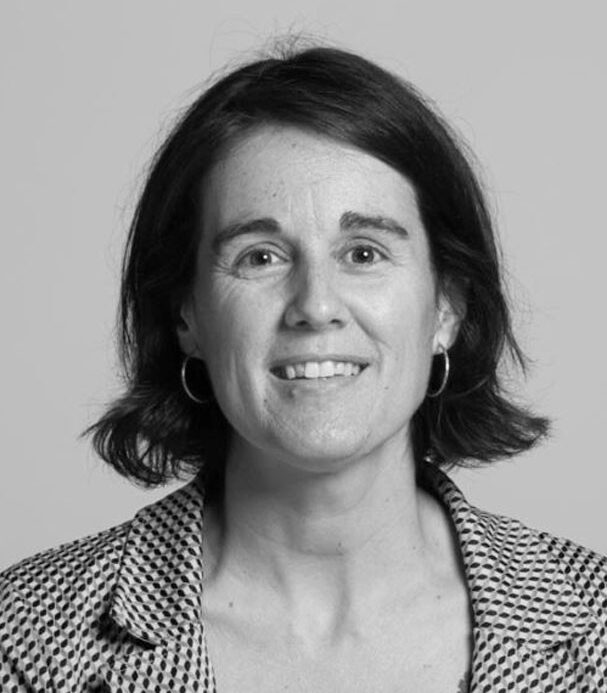Spotlight on… Dr. Laura Coll-Planas – Universitat de Vic

Dr. Laura Coll-Planas, Universitat de Vic – Universitat Central de Catalunya
The RECETAS partnership is rich in interdisciplinarity and expertise on topics related to mental health, loneliness and nature-based solutions.
How do our partners work on loneliness? How are they involved in RECETAS? Each month, one or more of our experts answer our questions!
🎤 Laura, can you briefly introduce yourself and the purpose of the organization you work for?
I am associate professor of Public Health at the Department of Social Sciences and Community Health at the Faculty of Health Sciences and Wellbeing at the University of Vic (UVic-UCC) in Catalonia (Spain). I studied Medicine at UB (Universitat de Barcelona) and conducted a PhD in Public Health at UAB (Universitat Autònoma de Barcelona) focusing on loneliness entitled “Loneliness, social support and social participation of older people from a health perspective”.
UVic-UCC is the third ranked young university in Catalonia and Spain and has been ranked 131st in the world in the Times Higher Education Young University Ranking, which focuses on 790 universities that are under 50 years old. The Faculty of Health Sciences and Wellbeing at the UVic-UCC comprises de Degrees of Human Nutrition and Dietetics, Nursing, Occupational Therapy and Physiotherapy. I am a researcher focused on ageing and belong to the research group M3O lead by Javier Jerez-Roig.
🎤 Why is loneliness a public health issue?
As far as I interpret the increase of the public awareness around loneliness in the last years, it has been key the link between loneliness and health. In other words, the scientific evidence linking loneliness with a higher mortality than smoking has helped a lot to increase the awareness. And this fact has turned loneliness into a public health issue. However, this is recent. I defended my thesis on loneliness in the public health field in 2017 and by then it was not obvious that loneliness would be seen as a public health issue. Although I hope this change of perspective will help to move forward in the knowledge and practice to tackle loneliness, it also has the potential to medicalise it, which is a way I think we should avoid. Moreover, loneliness is linked to losing the meaning of life, since others make our life worth living (or at least help a lot). And this existential aspect is to me far more relevant than the health impacts.
🎤 How is loneliness addressed in Barcelona? Do you know if there any policy or strategy implemented by the municipality to tackle this issue?
The City Council of Barcelona launched, just before the pandemic, the Municipal Strategy Against Loneliness 2020-2030 with a lifespan perspective. This Strategy has Scientific Advisory Board and I am member of it. In this frame, a current mapping of the city of Barcelona has shown that Barcelona City Council has 268 current projects, services and programmes that are directly or indirectly aimed at alleviating loneliness. Two municipal programmes to highlight are: VinclesBCN, which is a platform created in 2014 to alleviate loneliness among older people with more than three thousand users; Radars, which is a community action service launched in 2008 also aimed at alleviating loneliness and preventing situations of risk among older people, through collaboration with neighbours, shops, pharmacies, volunteers and other organisations. The project’s goal is to transform neighbourhoods into more humane, safe, participatory and supportive communities.
🎤 Can you tell us more about the impact of Covid-19 on loneliness?
My optimistic view about the impact of Covid-19 on loneliness is that, after all, I hope that the pandemic might has showed us how vulnerable and interdependent we are and can become, the importance of caring and looking after ourselves, and the unfair and avoidable inequalities that pervade in our society. Likewise, I think and hope it has raised awareness about loneliness: generally, on how relevant are social relationships for our wellbeing and, specifically, how much loneliness can be suffered while being surrounded by others in nursing homes.
🎤 What is your approach to loneliness in your personal research? With which public are you working?
I have been always focused on intervention studies more than observational studies. I got my inspiration from “the Circle of Friends” methodology developed by Kaisu Pitkala et al. Therefore, from the beginning, my approach to work on loneliness has been developing groups of older people where they can build and find peer support and get to know assets in their community to be engaged and participate.
🎤 How are you involved in the RECETAS project? What are you working on at the moment?
In RECETAS I am the leader of WP4, which aims at coordinating the testing of the nature-based social prescribing in the six cities (Barcelona, Helsinki, Praga, Marseille, Cuenca in Ecuador and Melbourne). And I am also in charge of the clinical trial in Barcelona. We are finishing the pilot and preparing to start the trial in January 2023.

